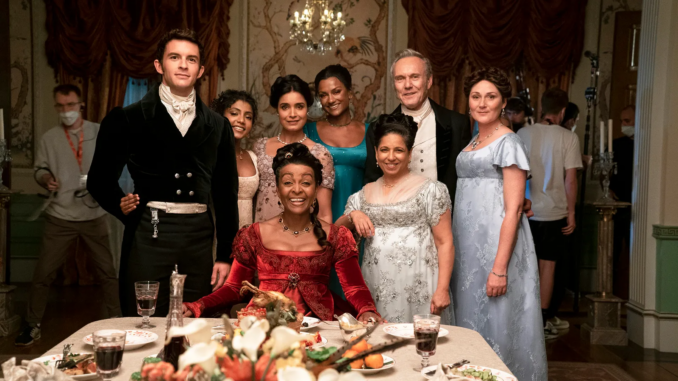
Ever since Bridgerton premiered on Netflix, fans have grown attached to its swoon-worthy leads, engaging side characters, and intricate family dynamics. So, when news broke that a key actor would have a reduced role in Season 4, many viewers were understandably worried. Does this signal creative struggles? A slow farewell? A major shift in storytelling?
While it’s natural to feel anxious about changes in a beloved series, there’s no reason to panic. In fact, a reduced role for a Bridgerton star might actually be a good thing for the show’s long-term success.
Every Season Brings a New Focus
Unlike traditional ensemble dramas where characters remain equally involved in every season, Bridgerton follows a unique structure. Each season adapts a different book from Julia Quinn’s series, meaning that past protagonists naturally fade into the background as new couples take center stage.
This was already evident when Regé-Jean Page (Simon Basset) left after Season 1. His exit caused an uproar among fans, but the series thrived with Anthony and Kate’s romance in Season 2. Similarly, Daphne (Phoebe Dynevor) had a diminished role before quietly exiting altogether, but the Bridgerton family dynamic remained strong. The same pattern is likely happening in Season 4.

If an actor’s screen time is reduced, it doesn’t mean they’re being sidelined—it just means the show is following its established formula.
Benedict’s Love Story Needs Space to Shine
One of the biggest takeaways from Season 3 is that Bridgerton needs to fully commit to each love story. While Penelope and Colin’s romance is highly anticipated, many fans felt that Season 3 risked becoming too crowded with subplots. With Season 4 expected to focus on Benedict and Sophie, the writers may be intentionally streamlining the supporting cast to avoid similar pacing issues.
If an actor’s role is reduced, it’s likely a strategic decision to ensure that Benedict’s storyline doesn’t get overshadowed by too many returning characters.
Scheduling Conflicts Are Normal in a Rising Cast
Bridgerton has transformed many of its actors into global stars, and with that success comes new career opportunities. Jonathan Bailey, Simone Ashley, and Nicola Coughlan are all booking major projects outside the show, meaning that their availability may be limited.
Rather than forcing actors to commit to a full season when their schedules are packed, Bridgerton may be adjusting their roles accordingly. This approach benefits both the actors—who can explore new opportunities—and the show, which can keep evolving without unnecessary constraints.
Quality Over Quantity
If a character has fewer scenes, their moments on screen will likely be even more impactful. The show has successfully managed this balance before—Daphne had a limited but meaningful presence in Season 2, and Violet Bridgerton (Ruth Gemmell) has remained relevant despite fluctuating screen time.
By keeping certain characters in the background rather than overloading the season with too many storylines, Bridgerton can ensure a more focused and compelling romance for Benedict and Sophie.
Trust the Process
While change can be unsettling, Bridgerton has repeatedly proven that it knows how to keep audiences engaged. Instead of worrying about one actor’s reduced role, fans should focus on the exciting new romance ahead. The show is simply evolving—and if history is any indication, it’s all part of the plan.
